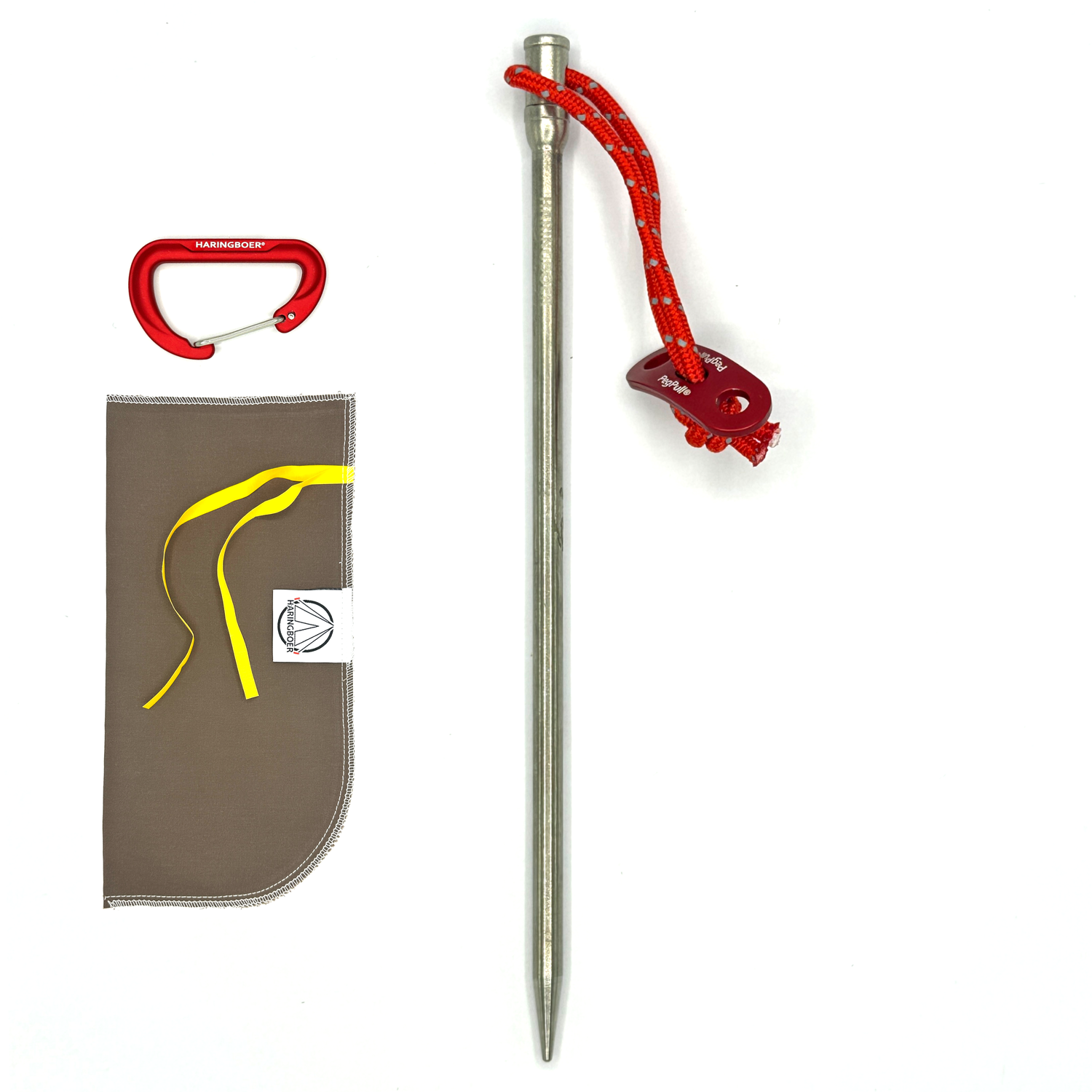Choosing Tent Pegs
Which tent peg do you need?
Directly to the selection table ↓
Choosing the right tent peg is not that difficult. You really only need to know two things.
1. How big is your tent? (= Holding power)
This determines the length of your herring .
2. What type of terrain do you camp on? (=Impact force)
This determines the type of herring.
Step 1 – Choose tent size (length of the peg)
| Tent size | Type of camper | Advice on herring length |
|---|---|---|
| Small tent (1-4 m²) | Solo / Duo, trekking | 16 - 20 cm |
| Medium tent (4-10 m²) | Family / car camping | 20 - 23 cm |
| Large tent (10+ m²) | Families / group camping | 23 - 26 cm+ |
Doubt? Choose a size bigger. Then you know for sure that you stand firmly.
Step 2 – Choose the base (type of herring)
| Substrate | Recommended herring type |
|---|---|
| Soft (Snow / Sand) | Wide long tent peg |
| Average (Clay) | Medium, strong herring made of Aluminum or Titanium |
| Hard (Rock / Pebble) | Super strong, pointed herring |
Tent pegs selection table
Ok, I'll make it a bit more visual, in the table below (increasing in tent peg length) you can see exactly for which Tent size and Surface the tent peg is suitable. From this table you can click through to more information about this tent peg.
Can't figure it out?
Send me a message via the contact form . I will personally help you with the right advice within 24 hours.
Additional Information (for the purists)
Which material suits you?
Tent pegs come in different materials. Each material has its own advantages and disadvantages in terms of weight, stiffness and durability. These are the most common:
Steel
+ Strong and affordable
+ Suitable for many surfaces
- Heavy and rust-sensitive
- Not convenient if you want to travel light.
Aluminum: The best choice for every camper
+ Lightweight (60% lighter than steel)
+ Rustproof and strong (The aluminum that Haringboer® uses is just as strong as steel)
- Slightly more expensive to purchase, but last a long time so more cost-effective in the long run
Titanium: The best choice for those who want the very best.
+ Super strong and super light
+ Corrosion resistant
- More expensive to purchase, but last a lifetime
- Difficult to edit (but that's my problem😉)
Wood: Good choice for Wadden Islands ( 31cm snow )
+ Natural look, great in sand or grass
- Sensitive to rain and wind
Plastic: Good choice for a picnic in the park
+ Light and cheap
- Not strong, not durable
What is really important when it comes to tent pegs?
You only need to know 2 things:
1. Tent size = Holding power
The bigger your tent, the more support you need.
➤ Small tent = Short & sturdy pegs
➤ Large tent = Longer & wider pegs
2. Substrate = Impact force
Hard ground requires narrow, strong pegs. Soft ground requires wide pegs.
➤ Hard ground = Short & strong peg
➤ Sand/grass = Long & wide herring
6 Quick Tips for Choosing
Material
Not all "aluminum" or "steel" is the same. Pay attention to the quality of the alloy.
Length
The smaller the tent / the harder the ground: the shorter the peg may be.
My minimum is 16 cm, shorter is really too short.
Ergonomics
You don't just drive a herring into the ground, you also have to get it out again.
Haringboer's latest innovation is the PegPull®, which allows you to easily get the herring out of the ground without sore fingers.
Form
The profile determines the stiffness.
Tip: Round heads are child-friendly and easy to store.
Number
Make sure you have enough pegs for your guy lines.
Not enough in a set? I'll be happy to make one custom for you.
Substrate
Sand = wide & long.
Rock = narrow & strong.
In doubt? Choose an all-rounder, but consider the weight.
















